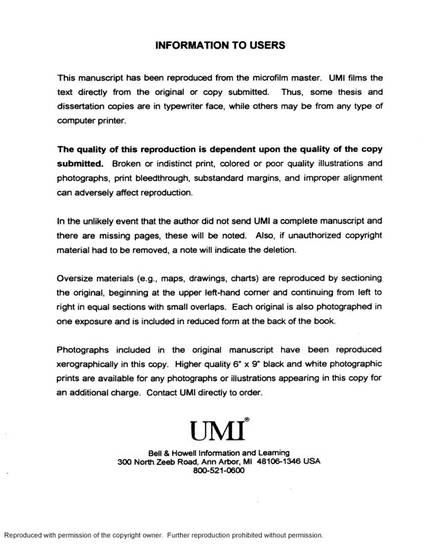
Thesis
The feasibility of bovine erythrocytes for the purpose of cross-species transfusion to human recipients
(2000)
Abstract
Use of animal blood could overcome concerns of supply and disease transmission with human blood donation if immunological, microbiological and ethical barriers are overcome. Here we investigated the feasibility of using bovine red blood cells (RBC) because of possibly diminished cross-species immune reactivity and the relative ease of venous access in the cow. A group of 12 tagged Holstein cows were randomly selected from the NSAC herd for evaluation. Tests included hemagglutination, complement mediated lysis, osmotic fragility, conventional human crossmatch, an RBC absorbtion assay using ELISA, bovine blood type characterization, and human IgM and IgG (including subtypes) antibody binding. Each of these tests included two human type O controls. Mean hemagglutination by pooled human serum (PHS) occurred between 1A to 1/18 dilutions in 11 of the twelve cows. Rabbit complement (25 pL, 1/1 dilution) lysed the RBC of the same 11 cows when incubated with PHS between mean dilutions of 1/18 and 1/42. Cow 37 RBC were neither agglutinated nor lysed by any dilution of PHS. FACS analysis showed that RBC from all cows including cow 37 bound human IgM and IgG. No difference was seen in IgG subtype binding. Typically, however, low hemagglutinators bound less IgM. Laminin ELISA detected no noteworthy difference in the levels of anti-aGal IgG and IgM in PHS absorbed by RBC from porcine and bovine subjects. A comparison of prominent bovine blood groups with the results of the hemagglutination and lytic assays revealed a significant relationship between the hemagglutination assay results and the expression of the J blood group antigen. Clinical human crossmatch tests showed bovine RBC were substantially less reactive with human sera compared to porcine RBC. Negative reactivity was observed between cow 37 RBC and seven out of nine random human sera representing all human blood groups. Osmotic fragility tests indicated that porcine RBC are more fragile than human and bovine RBC, and that bovine and human RBC are similarly robust. Bovine RBC are robust relative to human RBC. They elicit variable responses from human serum in the in vitro tests performed. Cow 37 RBC are unexpectedly resistant to normal hemagglutination and complement mediated lysis. In general, the results of these experiments suggest that bovine RBC are more appropriate human RBC substitutes compared to porcine RBC.
Keywords
- xenotransplantation,
- blood transfusion,
- blood groups
Disciplines
Publication Date
2000
Citation Information
James E Johnstone. "The feasibility of bovine erythrocytes for the purpose of cross-species transfusion to human recipients" (2000) Available at: http://works.bepress.com/vivianmcalister/246/
